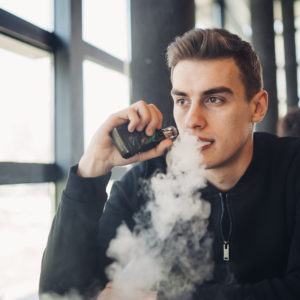The coming presidency of Joe Biden is a new chapter in American history, hopefully closing a divisive chapter of hate among fellow citizens and a lack of basic human decency in the Oval Office. That means new regulations, new executive orders, and President-elect Biden’s highly anticipated legislative priorities for domestic policy. Since the world has faced the scourge of the deadly COVID-19 pandemic, one of the main issues for voters is the protection of the public’s health during turbulent times.
Coming from an era of American diplomacy where a sitting president diminished the country’s commitments to the global stage and quickly arose to be an adversarial trade partner, the “take-no-prisoners” and the “ask-for-forgiveness later” mentality of the current presidential administration has exhausted the entire country. Now, Biden has an opportunity to improve the country in many respects while still offering his signature political centrism disguised as “radical progressivism” that allowed him to win the November 3, 2020 election.
One issue area that needs to be addressed immediately is the regulation of tobacco and alternative nicotine products, and how the executive branch public health regulators fumbled a variety of industry interventions that further stigmatized and mistreated the class of nicotine drug users (smokers, vapers, etc.) — all 50 million of them — in the United States.
Call it revisionist thinking, but former President Barack Obama could be considered the most friendly president as it pertains to the regulation of alternative tobacco products. Obama admitted to a struggle with cigarette smoking in his memoir, A Promised Land. Reading his book, you see a different side of the 44th president through a moral and lighthearted take on the time since he left office in 2016 and peacefully shifted power to lame-duck incumbent President Donald Trump. Accolades for his book aside, my belief in Obama’s status as a “vaping-friendly” president is based solely on pragmatic observation.
Keep in mind that Obama signed into law and openly lobbied for the most sweeping tobacco legislation in recent history. He signed the Family Smoking Prevention & Tobacco Control Act on June 22, 2009, setting in motion the state of tobacco and vaping regulations the industry and millions of consumers are now familiar with.
Under the act, the Food and Drug Administration (FDA) was officially granted the power to regulate tobacco products and further identify smoke-free nicotine products as “deemed tobacco products” in a bid to regulate a variety of growing tobacco product segments, including electronic cigarettes, heat-not-burn tobacco devices, and snus.
The Tobacco Control Act was the first real policy mandate that granted the FDA the power to fully regulate the tobacco industry, even considering benchmark bills that previously established health warnings and the Surgeon General’s message seen on current cigarette and tobacco product packaging. Due to the effectiveness of industry lobbying and input, Obama and his FDA pushed back a series of regulatory mandates prescribed in the act by several years. It wasn’t until a federal judge ruled in favor of tobacco control foundations, nonprofits, and non-governmental organizations that sued the FDA to implement the premarket tobacco regulations immediately after years of waiting. According to a series of court orders, the judge, in this case, forced the industry to comply with an expedited premarket tobacco applications (PMTA) deadline in May of 2020. This ruling moved up the deadline that was set by the FDA for several years later, due to the need for the industry to grow and establish consolidated brand power and order, and industry standards.
Due to the COVID-19 pandemic, the court granted an extension of the May deadline to September of 2020. That deadline came and went months ago. Now, hundreds of vaping products are progressing through the premarket tobacco applications regulatory pathway, with many firms receiving approval from the FDA to resume sales and business operations. What I admire most about the series of events leading up to the 2020 deadline is the commonsensical nature of the FDA and the pragmatism of the former Obama administration pushing back, by several years, the official implementation dates of regulations that are incredibly invasive to a company’s operations.
For those reasons, Obama could be considered the “ideal” president who knowingly or unknowingly permitted the emerging vaping and smoke-free industries to flourish for over a decade. Or, it could be Obama’s lack of action that paved the way for modernized vapor devices and the industry’s willingness to comply with equitably implemented regulations. Obama indeed granted the FDA the legal right to regulate tobacco products with extreme power. But, it wasn’t until Trump that the industry and its consumers were confronted with artificialized panic about vaping and the overblown reactions to misunderstandings propagated by one-sided media outlets and public health advocacy groups.
Through the cavalcade of Obama’s meandering path to a PMTA regulatory deadline, external forces elevated the issue of vaping regulation to a moral one. Under Donald Trump, the supposedly pro-business president appointed agency executives and rubber-stamped regulations that presented vaping in a draconian, sacrilege point of view. These officials advanced the outbreak of a moral panic, tenfold. Biden has an opportunity to stem that moral panic and adopt policy that encourages harm reduction interventions.


